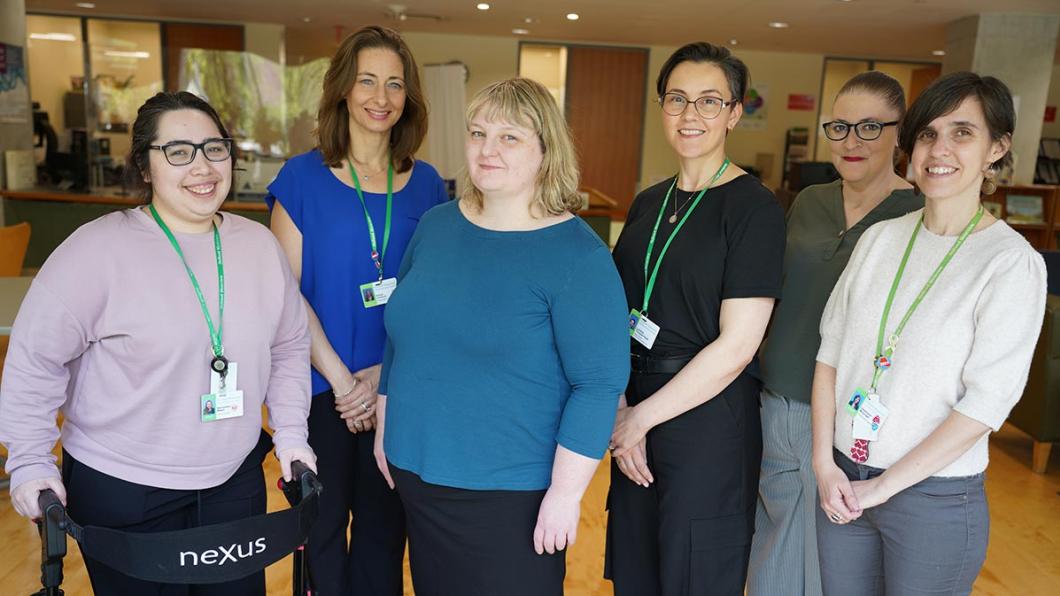
Pro bono legal services at Holland Bloorview help families navigate complex legal challenges
For many families navigating childhood disability and neurodiversity, their needs often extend beyond medical care-from housing insecurity and immigration concerns to education advocacy and social assistance needs. Legal concerns and barriers can add overwhelming stress to an already complicated journey.
That’s where Rosemary Masemann, triage lawyer with Pro Bono Ontario, comes in, providing free, confidential legal support to families at Holland Bloorview Kids Rehabilitation Hospital (Holland Bloorview).
Since 2023, Rosemary has been assisting families through a medical-legal partnership between Holland Bloorview and Pro Bono Ontario, a legal non-profit organization that offers different programs relating to access to justice for low- and middle-income Ontarians. She helps families understand their legal rights, navigate legal complexities, and access essential legal information and resources. As a seasoned lawyer with a background in family law, Rosemary brings expertise, compassion, and advocacy to this critical role. The partnership between Pro Bono Ontario and Holland Bloorview has been in place since 2013.
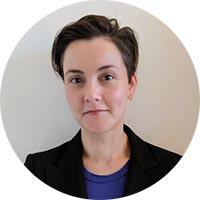 “At Holland Bloorview, we understand that health and well-being are shaped by both medical and non-medical factors,” explains Lyndsay Tchegus-Veiga, senior director, client and family integrated care, transitions and community partnerships. "Our partnership with Pro Bono Ontario ensures families have access to trusted legal support when they need it most. Rosemary’s expertise helps reduce barriers and empowers families with the knowledge and confidence to navigate complex legal systems."
“At Holland Bloorview, we understand that health and well-being are shaped by both medical and non-medical factors,” explains Lyndsay Tchegus-Veiga, senior director, client and family integrated care, transitions and community partnerships. "Our partnership with Pro Bono Ontario ensures families have access to trusted legal support when they need it most. Rosemary’s expertise helps reduce barriers and empowers families with the knowledge and confidence to navigate complex legal systems."
Rosemary works closely with clinicians, social workers, and other staff who refer families to her when legal concerns arise. Families can also self-refer to her services, ensuring accessible and barrier-free support.
“Essentially, anyone facing a legal issue can come to me as a first point of contact. I either provide guidance or connect them with another legal service provider better suited to assist them” says Rosemary.
Her support can range from writing letters to government or other organizations, notarizing forms, making advocacy calls to school boards or government workers, and more.
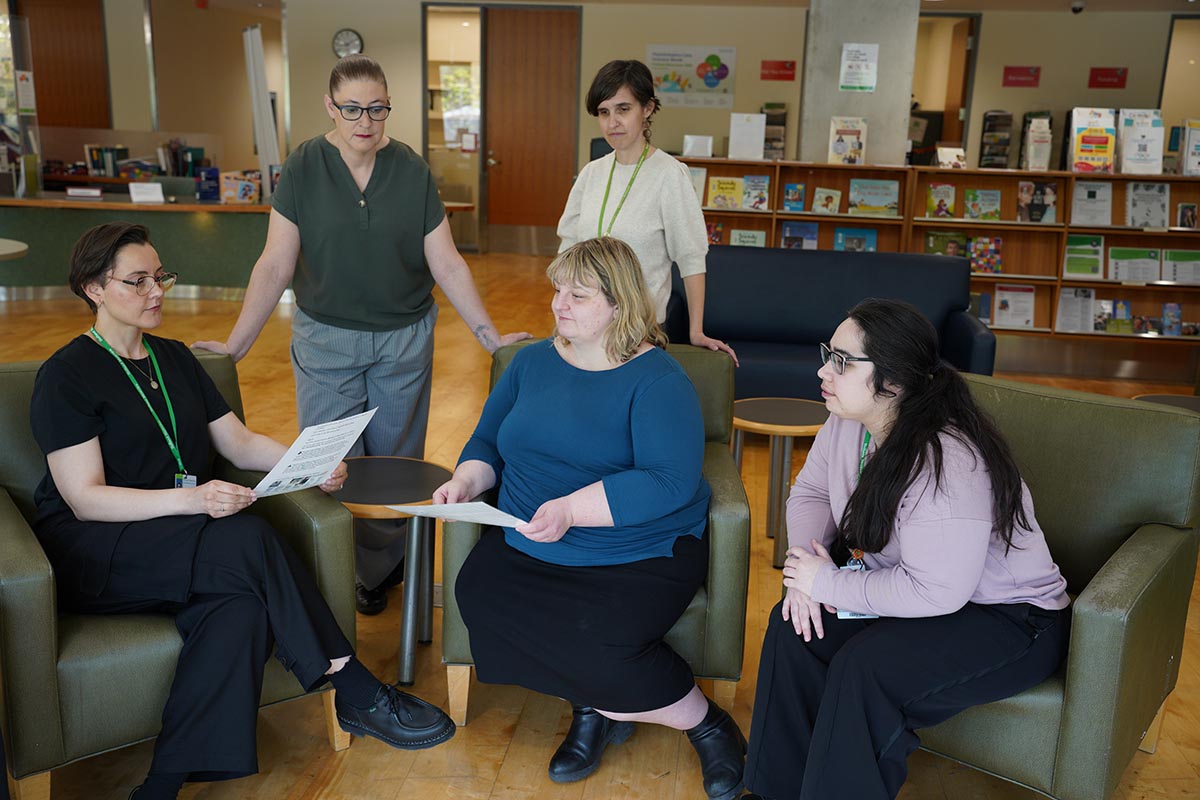
One of Rosemary’s key roles is working with the LIFEspan and bridging to adulthood program to advise youth and families approaching adulthood about legal considerations. “This includes topics like substitute decision-making, particularly for clients who are nonverbal or have intellectual or developmental disabilities that may affect their ability to make legal decisions,” she explains. “Once a child turns 18, parents need to understand how decisions will be made if their child is unable to make them independently. A big part of my role is advising families on these processes.”
Rosemary conducts a quarterly pop-up webinar in collaboration with the bridging to adulthood program team, focussing on legal considerations in adulthood. The next webinar is scheduled for May 21, 2025 at 6:00 p.m. (See more details).
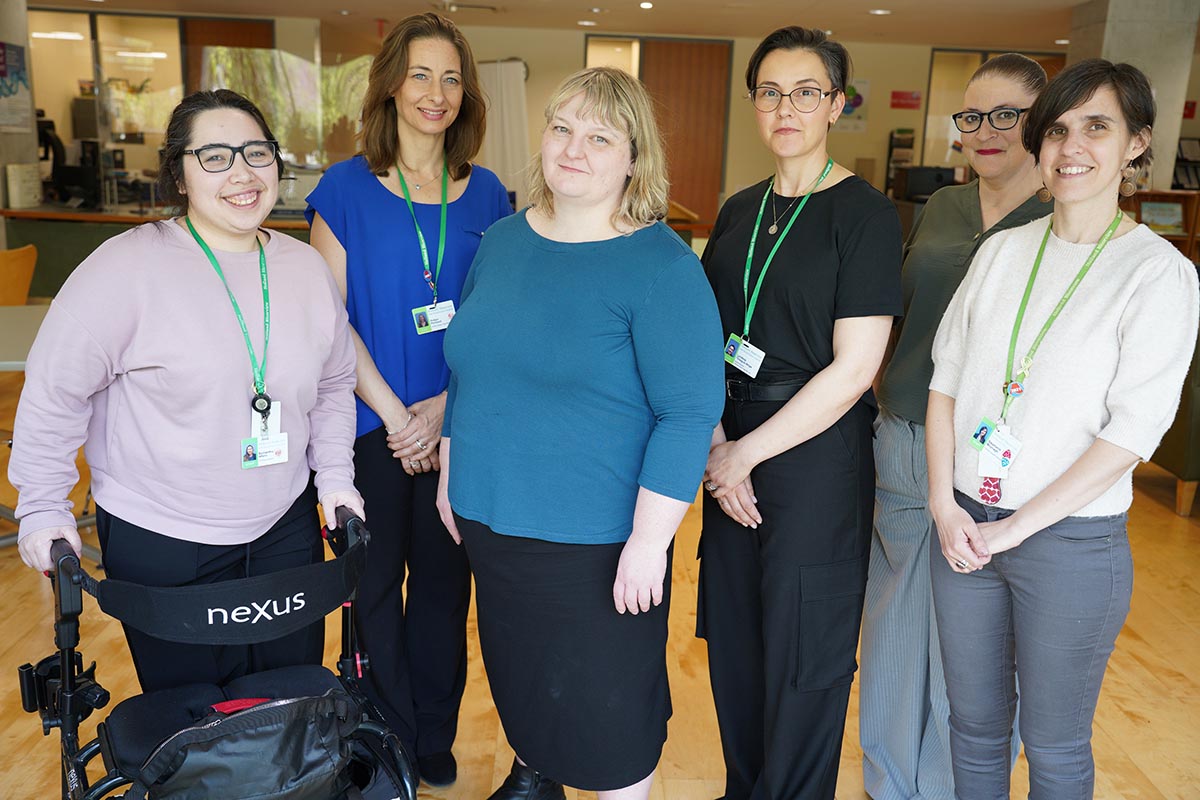
In addition to her work with youth and families transitioning out of the pediatric system, Rosemary assists families with a wide range of legal concerns, including but not limited to:
- Housing issues: Supporting families facing evictions, landlord disputes, or housing discrimination.
- Education advocacy: Advising parents on how to secure special education services and accommodations for their child in school.
- Social assistance and benefits appeals: Assisting families who are applying for benefits, such as the assistance for children with severe disabilities (ACSD) program.
- Immigration and healthcare access: Providing guidance to families on OHIP eligibility and other legal rights related to immigration status and assisting families in connecting to other immigration-related service providers.
- Family law information: Connecting families with resources and providing legal information.
Common barriers
The goal of this program is to reduce barriers to legal help for families who are already stretched in so many directions. Some of the barriers families face include:
- Language: For families whose first language is not English, accessing legal information and services can be challenging.
- Time constraints: Many parents are juggling the care of a medically complex child alongside work, school, and other obligations, leaving little time to research
- Technology: Much of today’s legal information is accessed online, but some families lack the necessary technology and skills to easily access this information.
- Geographical: Many clients live far from resource centers, making it difficult to access information and legal support, especially if they rely on public transit like the TTC.
Making a meaningful impact
While much of Rosemary’s work happens confidentially, the impact is deeply felt by the families she serves. One recent success story involved a parent who was experiencing discrimination because their autistic child was “making loud noises” which had led to complaints from neighbors and threats of eviction from their landlord.
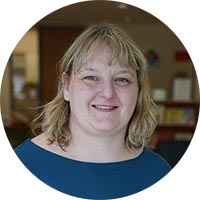 “I advised the parent on strategies and approaches for how to deal with the landlord. We discussed their rights regarding disability accommodations, the legal process around evictions, and what steps a landlord must take before eviction.”
“I advised the parent on strategies and approaches for how to deal with the landlord. We discussed their rights regarding disability accommodations, the legal process around evictions, and what steps a landlord must take before eviction.”
With this knowledge, the parent was able to have a productive conversation with the landlord where they resolved the issues. “A lot of the time, just knowing your rights gives you the confidence to address the issue” says Rosemary
In another case, Rosemary helped a newcomer parent secure extended OHIP coverage during a gap in their work permit renewal, ensuring they didn’t lose access to critical healthcare services.
“This service is more than vital—it’s life-changing", says Catherine, Holland Bloorview's client. “I was facing eviction, couldn’t afford therapy, and was overwhelmed. But Rosemary didn’t just help me legally—she listened, she cared, and she gave me time. She’s truly exceptional.”
How to access the pro bono service at Holland Bloorview
Families of children and youth receiving care at Holland Bloorview can be referred by a clinician, or contact a family support specialist at the Holland Bloorview Grocery Resource Centre at resourcecentre@hollandbloorview.ca; or reach out to Rosemary directly at 416-425-6220 ext 6557 or email: rmasemann@hollandbloorview.ca.
This work is generously supported by donors and the Holland Bloorview Foundation.
To learn more, visit Holland Bloorview website or Pro Bono Ontario